Venezuela's US-backed Guaido declares self acting president
The president of Venezuela's opposition-led National Assembly, Juan Guaido, has declared himself interim president of the country and was immediately recognized by the United States, which is accused by Caracas of plotting to topple President Nicolas Maduro.
Addressing anti-government protesters in the capital Caracas on Wednesday, Guaido took an oath, swearing himself in as interim president.
"I swear to assume all the powers of the presidency to secure an end of the usurpation," he said.
But Venezuelan Defense Minister Vladimir Padrino said via Twitter on Wednesday that the country's armed forces disavow any president who is self-proclaimed or imposed by "dark interests."
Minutes later, US President Donald Trump recognized Guaido as the “legitimate” interim president of the Latin American country, calling on other governments in the Western Hemisphere to also recognize Guaido.
Maduro cuts US ties
Shortly after Trump's recognition of Guaido as Venezuela’s interim president, Maduro said he was severing diplomatic and political ties with the United States.
Signing "a diplomatic note," the Venezuelan president said he would give "the entire diplomatic and consular personnel of the United States of America in Venezuela 72 hours to leave the country."
#Venezuela's President cuts US ties#UnitedStates #Maduro pic.twitter.com/TQZMeA3yE2
— Press TV (@PressTV) January 24, 2019
At a rival gathering from the presidential palace broadcast live on state television, Maduro also accused the opposition of seeking to stage a coup with the support of the US, which he said was seeking to govern Venezuela from Washington.
The move by the US administration was swiftly followed by similar statements from Canada and a slew of right-leaning Latin American governments, including Venezuela's neighbors Brazil and Colombia.
Last week, Russia said Washington's approach to the South American country showed that its efforts to undermine governments around the world it did not favor were ongoing.
Guaido said he would be willing to replace Maduro with the support of the military and to call elections.
The opposition leader on January 11 branded Maduro, 56, as an illegitimate “usurper,” saying he was prepared to take on the South American country’s presidency on an interim basis and call elections, only a day after socialist Maduro was sworn in for a second term.
Rival demonstrations were staged in Venezuela for and against President Maduro on Wednesday.
Venezuela, which sits atop the world’s largest oil reserves, has been struggling with a worsening economic situation over the past years, which has caused civilian cross-border journeys into Colombia to purchase basic commodities and foodstuffs.
Maduro has accused the US of being behind Venezuela’s economic crisis, saying Washington is orchestrating attempts to topple him as part of a wider offensive against Latin American leaders defying the US hegemony.
In 2017, Trump said he would not “rule out” a military option for Venezuela to solve the ongoing crisis in the country.
Washington also intensified unilateral sanctions on the socialist country, announcing bans on Maduro’s wife and several of his top allies to further increase pressure on the government in early September.
Multiple sources were quoted as saying that the Trump administration could impose new sanctions on Venezuela's vital oil sector as soon as this week to mount more pressure on Maduro.
VIDEO | Grieving family demands justice after son killed in Iran foreign-backed unrest
European parliament pushes new hostile measures after CIA-Mossad-backed riots in Iran
Behind the riots: Spy games, media spin, discarded monarchists and lessons from history
IRGC deputy chief warns of harsh response to any aggression against Iran
Araghchi appreciates Pakistan’s vote against anti-Iran UNHRC resolution
Discover Iran: Historical, natural, and economic tapestry of idyllic Hormozgan islands
ICE detains 2-year-old girl, sends her to Texas despite court order
VIDEO | Trump claims his 'Board of Peace' might replace the UN



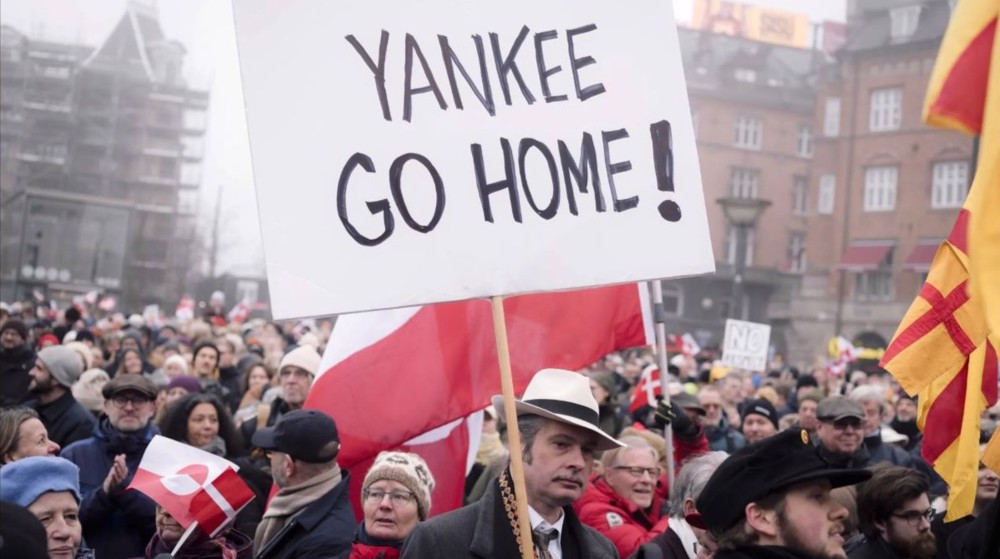
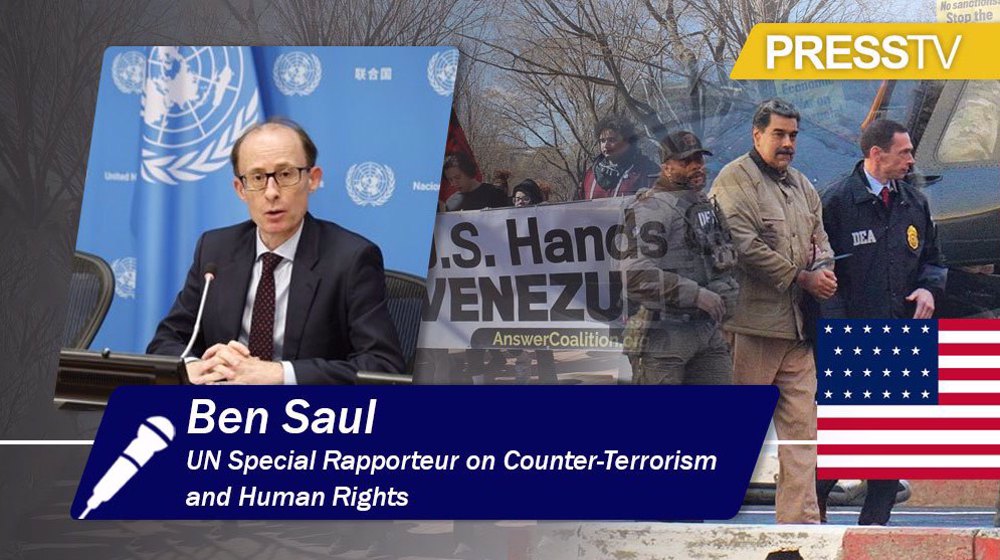
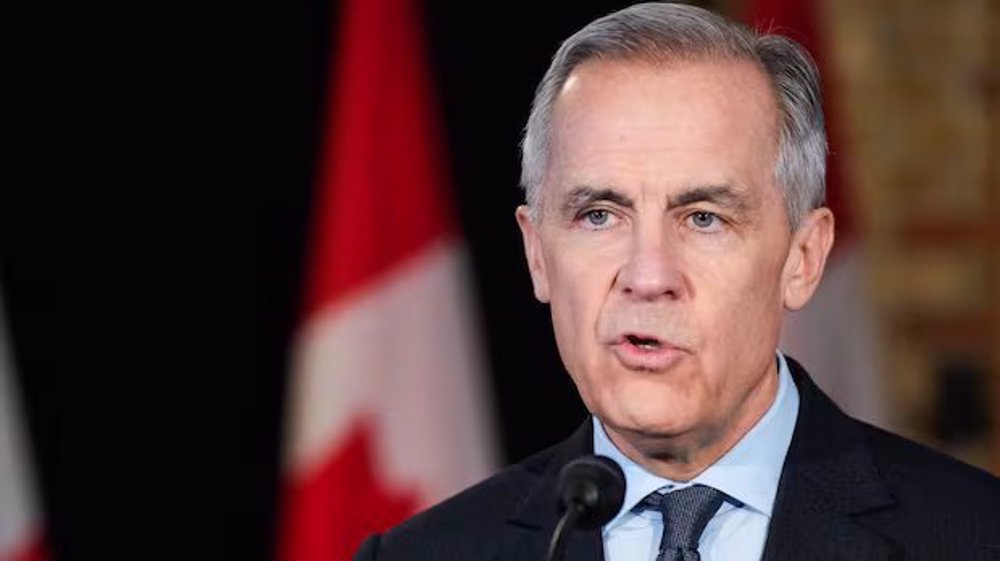



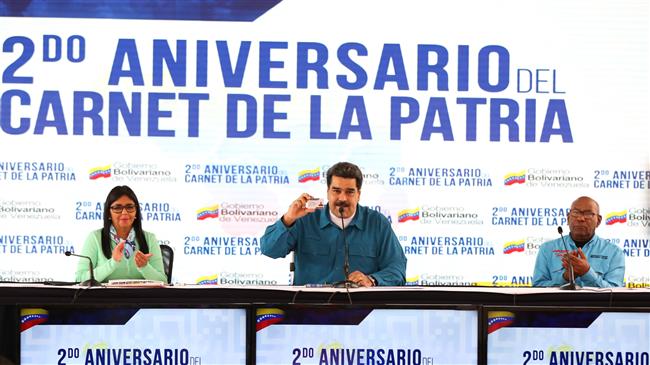
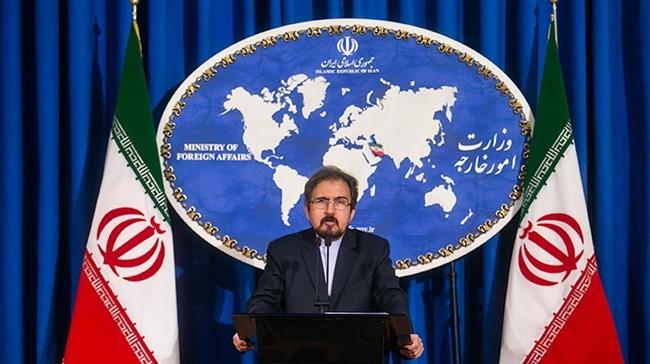
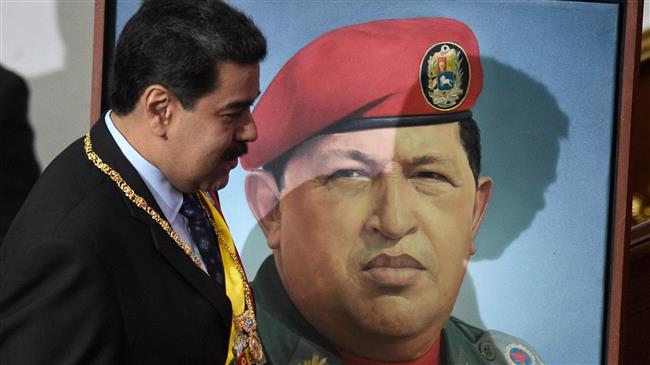
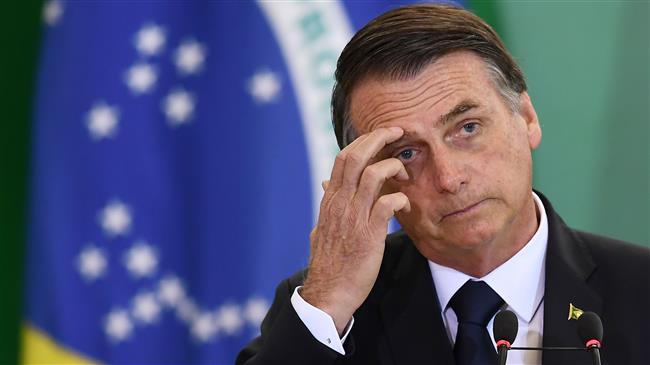
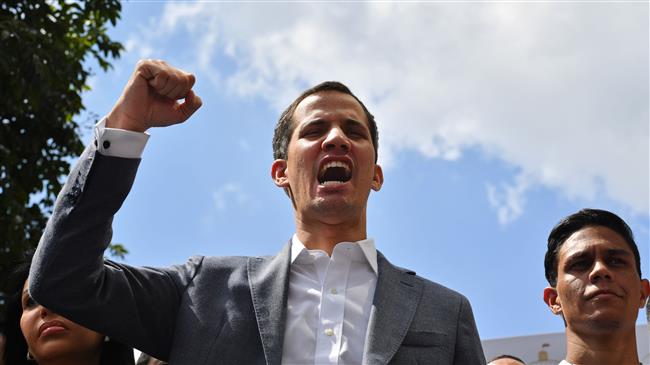

 This makes it easy to access the Press TV website
This makes it easy to access the Press TV website